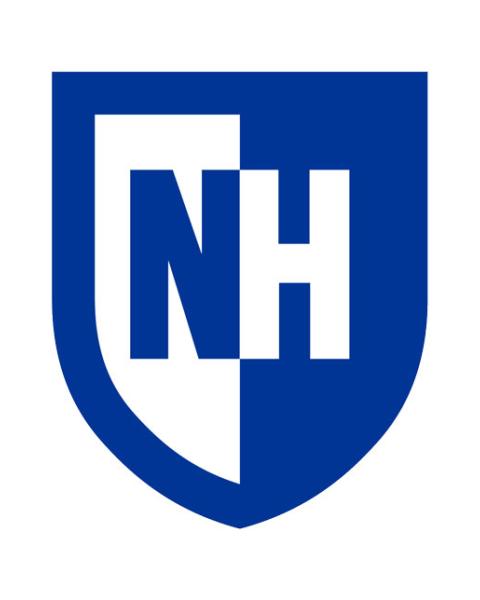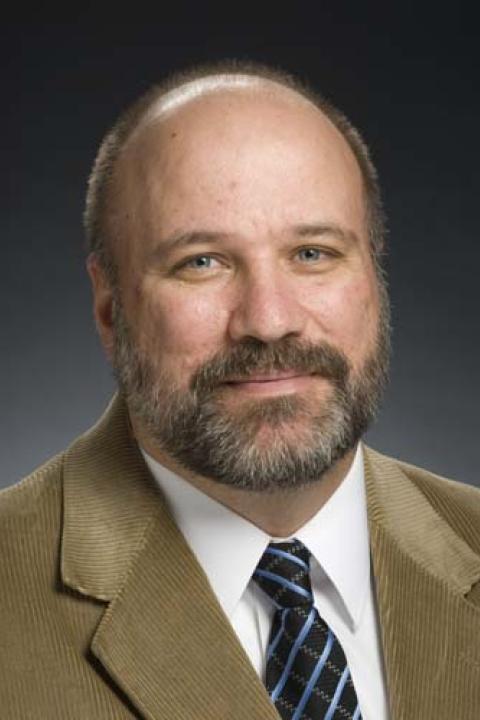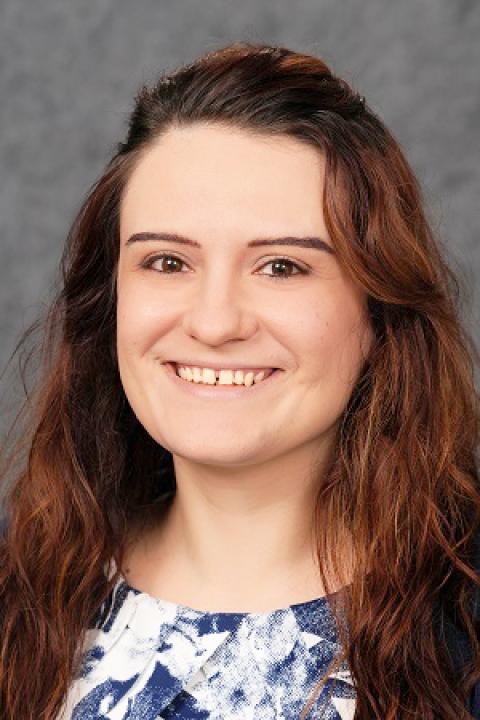Paul College’s STEM designated Ph.D. in Economics is nationally recognized for its dual focus on training research economists and college teachers. No other program provides more individualized mentoring to help students develop as economists and strong researchers. All students attend a weekly research seminar starting in their first year. Many students earn the Cognate in College Teaching in addition to the Ph.D. The Cognate is a separate certificate program that includes coursework and mentoring in teaching economics. Paul College's dual-focus Ph.D. has a superior record of student publication and placement into tenure-track assistant professor positions.
Why get a doctoral degree in economics?
A doctorate in economics will help you gain a deeper understanding of all economic systems and enable you to provide in-depth analysis and detailed models to help corporations and governments make sound decisions related to budgets, resources, and programs. A Ph.D. in economics also grounds you in the concepts and models of economics and provides you with the research skills and supervised training in teaching needed to become a college professor.
Why choose UNH's Ph.D. in economics program?
Dual focus: Paul College's STEM-designated program is one of a handful in the country that has a dual focus on developing both researchers and college teachers.
Length of program: Complete coursework in just 2 1/2 years, then focus on dissertation research.
Mentorship: Along with broad training in economics students benefit from close mentorship from distinguished research faculty.
Excellent job placement: Most of our graduates entering academic careers have a great track record of obtaining promotion and tenure. Others have successfully built careers in government and industry economist roles.
Potential careers
- Banking and financial services
- College teaching
- Economic development
- Economic forecasting
- Entrepreneurial ventures
- Government administration
- Urban and regional planning
Curriculum & Requirements
Admission to the doctoral program is reserved for students who demonstrate exceptional promise in economics. Students pursue the Ph.D. for various reasons, including a desire to make research contributions to the discipline and to teach economics at the college level.
The STEM designated program is nationally recognized for its dual focus on training research economists and college teachers. No other program provides more individualized mentoring to help students develop as research economists and college teachers. Students develop research skills early on through an integrative research experience. A cornerstone of this experience is the department's weekly research seminar, in which students write critical reviews and referee reports on the papers presented, act as discussants, and present their own research.
UNH’s Ph.D. in Economics is a research degree that provides students with a deep understanding of economic theory, institutions, and empirical analysis. Graduates move into faculty positions at other institutions of higher learning. They also pursue careers as professional economists in industry and government.
Degree Requirements
Requirements include nine core courses, two comprehensive theory exams, field courses, two fields of concentration (one major and the other minor), four semesters of seminar, research workshop, a major field capstone experience, doctoral dissertation proposal defense and final defense. Candidacy is reached following successful completion of:
- comprehensive theory examinations in microeconomics and macroeconomics;
- capstone experience in major field (health economics, environmental economics or international economics);
- naming an advisor willing to chair the student's dissertation committee and a viable dissertation topic.
| Code | Title | Credits |
|---|---|---|
| Core Courses | ||
| ECON 825 | Mathematical Economics 1 | 4 |
| ECON 976 | Microeconomics I | 4 |
| ECON 977 | Microeconomics II | 4 |
| ECON 972 | Macroeconomics I | 4 |
| ECON 973 | Macroeconomics II | 4 |
| ECON 926 | Econometrics I | 4 |
| ECON 927 | Econometrics II | 4 |
| ECON 928 | Econometrics III, Time Series Econometrics | 4 |
| ECON 929 | Econometrics IV, Advanced Econometrics | 4 |
| Research Skills | ||
| ECON 979 | Research Skills 2 | 2 |
| Graduate Economics Seminar | ||
| ECON 988 | Graduate Economics Seminar 3 | 8 |
| Research Workshop | ||
| ECON 996 | Research Workshop 4 | 2 |
| Comprehensive Examinations in Microeconomics and Macroeconomics | ||
| Fields of Concentration (one major and one minor) | ||
- 1
Course is offered in a concentrated manner over 2 weeks at the beginning of the fall semester. It provides the mathematical foundation needed for the fall theory and econometrics classes.
- 2
Students begin work on a significant research project under the guidance of a faculty member and the instructor of ECON 979 Research Skills in the second year of study.
- 3
Students are required to sign up for the Graduate Economics Seminar in both fall and spring semesters during their first two years of study for a total of 8 credits.
- 4
Beyond their second year of study, students continue to participate in the department's weekly seminar by enrolling in one semester of Research Workshop.
Comprehensive Examinations in Microeconomics and Macroeconomics
Written evidence of proficiency in economic theory is demonstrated by passing comprehensive examinations in Microeconomics and Macroeconomics. To sit for a theory examination, students must have passed (B- or higher) the first-year required theory courses. Students should take both theory examinations at the end of their first year of study. Per Graduate School and Departmental policy, the number of attempts at the comprehensive theory examinations is restricted to two per examination. These examinations are given each year in June and, if a second attempt is necessary, in early August. A student who does not show up on a scheduled test date will have the examination counted as one of their attempts.
Fields of Concentration
Students must complete the requirements for one major field and one minor field. A student designates their major field no later than the beginning of the third year of study and must have departmental approval to change the major field thereafter.
Environmental Economics
| Code | Title | Credits |
|---|---|---|
| Major Field Course Requirements | ||
| ECON 908 | Environmental Economics: Theory and Policy | 4 |
| ECON 909 | Environmental Valuation | 4 |
| Minor Field Course Requirements | ||
| ECON 908 | Environmental Economics: Theory and Policy | 4 |
| ECON 909 | Environmental Valuation | 4 |
Health Economics
| Code | Title | Credits |
|---|---|---|
| Major Field Course Requirements | ||
| ECON 941 | Empirical Analysis in Health Economics | 4 |
| ECON 942 | Theoretical Analysis in Health Economics | 4 |
| Minor Field Course Requirements | ||
| ECON 941 | Empirical Analysis in Health Economics | 4 |
| ECON 942 | Theoretical Analysis in Health Economics | 4 |
International Economics
| Code | Title | Credits |
|---|---|---|
| Major Field Course Requirements | ||
| ECON 945 | International Trade | 4 |
| ECON 946 | Open Economy Macroeconomics | 4 |
| Minor Field Course Requirements | ||
| ECON 945 | International Trade | 4 |
| ECON 946 | Open Economy Macroeconomics | 4 |
Capstone Experience in Major Field
Students must write an original research paper in their field area under the supervision of the faculty teaching the field courses. This paper may also be used to fulfill the ECON 979 Research Skills requirement for the 2nd or 3rd year paper.
Graduate Economics Seminar
Students are required to sign up for the Graduate Economics Seminar (ECON 988) in both semesters during each of their first two years of study.
Research Skills
In the ECON 979 Research Skills course, students pursue a significant research project under the guidance of a faculty member and the class instructor. Students are expected to complete a research paper and present it in class.
The course is normally taken in a student's second year of study. Students also present their research in a conference-style format in their third year of study, typically in the department's graduate seminar series. The presentation may involve either a significant extension of their second-year paper from ECON 979 Research Skills or a new research project. The third-year presentation requirement may satisfy the presentation requirement for ECON 996 Research Workshop.
Research Workshop
Beyond their second year of study, students continue to participate in the department's weekly seminar by enrolling in one semester of Research Workshop (ECON 996). Research Workshop students present their own research in the research seminar series. Students should secure a dissertation adviser prior to signing up for their Research Workshop. The research workshop requirement should be completed by the end of the fifth year of study.
Dissertation Proposal Defense
Prior to defending their proposal, a student must find a dissertation chair and form a dissertation committee. The dissertation proposal may be defended as part of the Research Workshop or separately from the Workshop.
Final Dissertation Defense
Program Learning Outcomes
- Students will demonstrate a deep understanding in the three core fields of Economics (Microeconomics, Macroeconomics, and Econometrics).
- Students will gain expertise in their major field of study (Environmental Economics, Health Economics, or International Economics).
- Students will produce original and independent research that makes theoretical and/or empirical contributions to one or more existing literatures.
- Students will be able to analyze relevant data sets using appropriate econometric methods.
- Students will produce research papers that meet a professional standard in terms of clarity of thought and effective organization.
- Students will demonstrate strong skills in presenting their research in professional settings.
Deadlines
Applications must be completed by the following deadlines in order to be reviewed for admission:
- Fall: April 15
- Spring: N/A
- Summer: N/A
- Special: N/A
Application fee: $65
Campus: Durham
New England Regional: RI VT ME
Accelerated Masters Eligible: No
New Hampshire Residents
Students claiming in-state residency must also submit a Proof of Residence Form. This form is not required to complete your application, but you will need to submit it after you are offered admission, or you will not be able to register for classes.
Transcripts
If you attended UNH or Granite State College (GSC) after September 1, 1991, and have indicated so on your online application, we will retrieve your transcript internally; this includes UNH-Durham, UNH-Manchester, UNH Non-Degree work and GSC.
If you did not attend UNH, or attended prior to September 1, 1991, then you must upload a copy (PDF) of your transcript in the application form. International transcripts must be translated into English.
If admitted, you must then request an official transcript be sent directly to our office from the Registrar's Office of each college/university attended. We accept transcripts both electronically and in hard copy:
- Electronic Transcripts: Please have your institution send the transcript directly to grad.school@unh.edu. Please note that we can only accept copies sent directly from the institution.
- Paper Transcripts: Please send hard copies of transcripts to: UNH Graduate School, Thompson Hall- 105 Main Street, Durham, NH 03824. You may request transcripts be sent to us directly from the institution or you may send them yourself as long as they remain sealed in the original university envelope.
Transcripts from all previous post-secondary institutions must be submitted and applicants must disclose any previous academic or disciplinary sanctions that resulted in their temporary or permanent separation from a previous post-secondary institution. If it is found that previous academic or disciplinary separations were not disclosed, applicants may face denial and admitted students may face dismissal from their academic program.
Letters of recommendation: 3 required
Recommendation letters submitted by relatives or friends, as well as letters older than one year, will not be accepted.
Test Scores: GRE Required
GRE required. Request official test scores to be sent directly to the Graduate School by the testing service. Test scores more than five years old are not acceptable. Student copies and photo copies of scores are not considered official. Our CEEB code is 3918.
For general information about test scores required for admission into our programs please visit our Test Scores webpage.
Personal Statement/Essay Questions
Prepare a brief but careful statement regarding:
- Reasons you wish to do graduate work in this field, including your immediate and long-range objectives.
- Your specific research or professional interest and experiences in this field.
Resume
Resume is optional but recommended.
Important Notes
All applicants are encouraged to contact programs directly to discuss program-specific application questions.
International Applicants
Prospective international students are required to submit TOEFL, IELTS, or equivalent examination scores. English Language Exams may be waived if English is your first language. If you wish to request a waiver, then please visit our Test Scores webpage for more information.



























